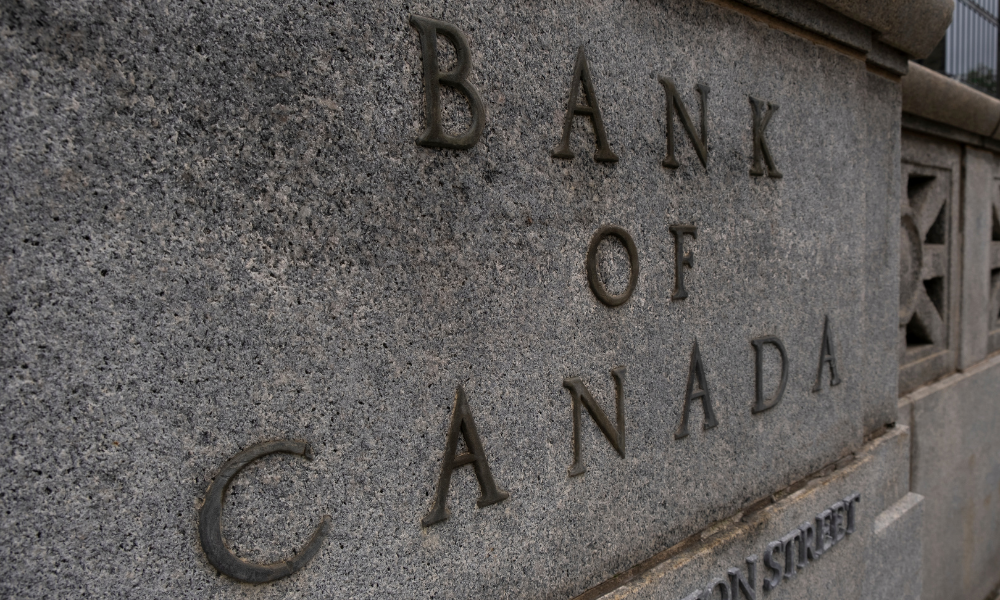Bank of Canada holds rate as weak demand and price sensitivity curb firms’ pricing power

Canadian businesses expect inflation to slow, even as tariffs continue to drive up input costs and weak demand limits pricing power, according to the Bank of Canada’s latest Business Outlook Survey released July 21.
The survey showed short-term inflation expectations fell to just under three percent in June, down from 3.7 percent in April.
Firms anticipate input prices will rise over the next 12 months, but most expect to raise their own prices at the same pace as the past year.
The Bank said “tariff-related cost increases are also putting upward pressure on firms’ expected selling prices,” but added that competitive pressure and weaker demand are restricting the ability to pass these costs on to consumers.
Businesses continue to absorb tariff-related cost increases by compressing margins and pursuing efficiencies, as noted in the Bank of Canada’s quarterly report.
Around half of firms reported already facing additional tariff-related costs, not only from tariffs themselves but from seeking alternative suppliers and markets.
According to the Financial Post, demand-side weakness is pressuring firms across sectors, with many consumers delaying major purchases due to economic uncertainty, high goods prices, and elevated housing costs.
The consumer spending index declined for a second straight quarter.
Despite cost pressures, most businesses plan to keep employment steady.
Layoffs remain a “last resort” in the event of a prolonged drop in sales, while hiring intentions are subdued and wage growth expectations have returned to pre-pandemic levels.
The June unemployment rate dropped slightly to 6.9 percent from 7 percent in May.
As reported by CTV News, the Bank of Canada has kept its policy rate at 2.75 percent since March. Economists now expect the rate to remain unchanged at the July 30 announcement.
Core inflation has hovered around three percent since April, which factored into the decision to hold rates steady in June.
Governor Tiff Macklem said last month that consumer prices will rise unless tariffs are removed.
Expectations for rate cuts have shifted. Bloomberg reported that economists at Bank of Nova Scotia and Royal Bank of Canada now expect the central bank to hold the 2.75 percent rate through the end of 2025.
RBC called this level the midpoint of a “neutral range” where policy is neither restrictive nor stimulative.
However, economists at Bank of Montreal and TD Securities still forecast at least one more cut this year.
RBC chief economist Frances Donald told CTV News that while there are “pockets” of weakness—particularly in housing and manufacturing—rate cuts may not be the right tool for regional or sector-specific challenges.
“Rate cuts would probably be inappropriate in an economy like that,” Donald said, pointing to differences between areas like Windsor, with an 11 percent unemployment rate, and Victoria, at just 3.9 percent.
Oxford Economics also expects the policy rate to remain on hold, arguing that tariffs and supply strain will keep inflation elevated into 2026.
The firm anticipates continued job losses through the rest of 2025 and does not expect further rate cuts even as growth remains weak.
On the investment side, most firms continue to hold off on capital spending.
The Bank’s survey found that investment is primarily directed toward routine maintenance rather than capacity expansion.
Fewer firms than in the previous quarter expect tariffs to negatively affect investment plans, especially in trade-exposed manufacturing.
The number of businesses preparing for a recession fell to 28 percent, down from 32 percent last quarter, but remains above 2024 levels.
Meanwhile, 66 percent of consumers still expect a recession within the next year, as per the Bank’s Canadian Survey of Consumer Expectations.
According to BNN Bloomberg, although firms feared severe tariff impacts earlier this year, only one-third now expect higher tariff-related costs—down from two-thirds in the prior quarter.
While sectors like steel, autos, and aluminum still report pressure, most exporters in the Bank’s survey have not been directly impacted.
Some benefited from exemptions under the US-Mexico-Canada agreement.
Business sentiment has improved since March and April’s lows, especially among exporters. Firms also report fewer labour shortages and greater ease in finding workers than last year.
The share of firms expecting to reduce headcount remains near historical averages.
Overall, the Bank said near-term inflation expectations have returned to late 2024 levels. It noted that while tariffs remain a key inflation driver, slower demand is creating disinflationary pressure.
Despite ongoing uncertainty, firms are adjusting forecasts with more confidence than in previous quarters.



